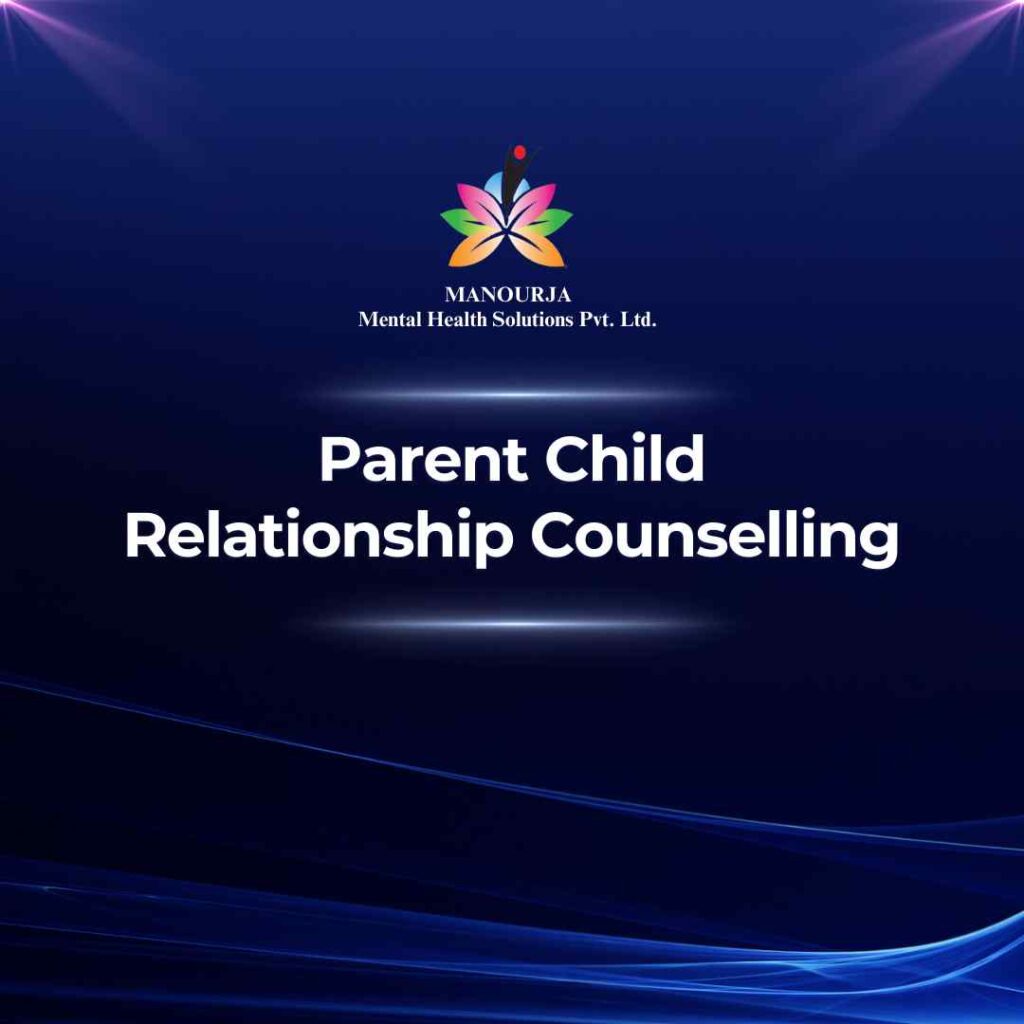Parent-Child Relationship Counselling

Parent-child relationship problems can manifest in various ways, affecting both the emotional well-being of the parent and the child. These issues can stem from communication breakdowns, behavioral conflicts, or external pressures that strain the relationship.
Common Symptoms of Parent-Child Relationship Problems Include
- Frequent Arguments: Regular conflicts over seemingly minor issues, indicating underlying tensions.
- Communication Breakdown: Difficulty in expressing feelings and thoughts effectively to one another, leading to misunderstandings and resentment.
- Emotional Withdrawal: One or both parties pulling away emotionally, which may appear as indifference or a lack of affection.
- Behavioral Issues in Children: Acting out at home or school can be a sign of distress and an inability to cope with unresolved feelings.
- Authority Disputes: Struggles over control and authority, particularly with teenagers, can signify deeper issues in the relationship.
- Lack of Trust: Evident when there is secrecy or deception from either party, or when there is an overt expression of doubt about one another’s intentions or actions.
These symptoms can create a challenging home environment and if not addressed, can lead to long-term detrimental effects on the family dynamics.
How Counselling at MANOURJA Effectively Treats Parent-Child Relationship Problems
Counselling provides a neutral space for parents and children to explore their relationship issues and develop healthier ways to interact and communicate.
- Family Therapy: Utilizes various techniques to facilitate better communication and understanding within the family unit, helping to resolve conflicts and improve relationship dynamics.
- Behavioral Therapy: Focuses on changing specific negative behaviors in children and parents, providing strategies to encourage positive interactions.
- Cognitive Behavioral Therapy (CBT): Helps both parents and children challenge and change unhelpful cognitive distortions and behaviors, improving emotional regulation and developing effective communication skills.
- Parenting Skills Training: Offers guidance and practical advice on parenting strategies that foster a supportive home environment.
- Psychoeducation: Educates about developmental stages and appropriate expectations, which can help parents understand their child’s behaviors and needs better.
Steps in MANOURJA’s Counselling Process for Parent and Child
- Initial Assessment: Gathering information on the nature of the relationship problems, individual perspectives, and specific incidents that may have contributed to the tensions.
- Goal Setting: Collaboratively establishing clear goals aimed at enhancing the relationship, such as improving communication, resolving conflicts, or changing specific behaviors.
- Development of a Personalized Treatment Plan: Creating a tailored plan that incorporates suitable therapeutic modalities based on the family’s needs and dynamics.
- Regular Counselling Sessions: Engaging in structured sessions designed to address the relationship issues, practice new skills, and monitor the progress of the interventions.
- Continuous Monitoring and Adjustment: Regularly evaluating the effectiveness of the therapy and making necessary adjustments to ensure the treatment remains responsive to the evolving needs of the family.
Through these Counselling strategies, MANOURJA aims to restore harmony and foster positive, enduring relationships within families, empowering parents and children to overcome their challenges together.
“Each day holds a new chance to strengthen bonds, forge understanding, and build a legacy of love.”
